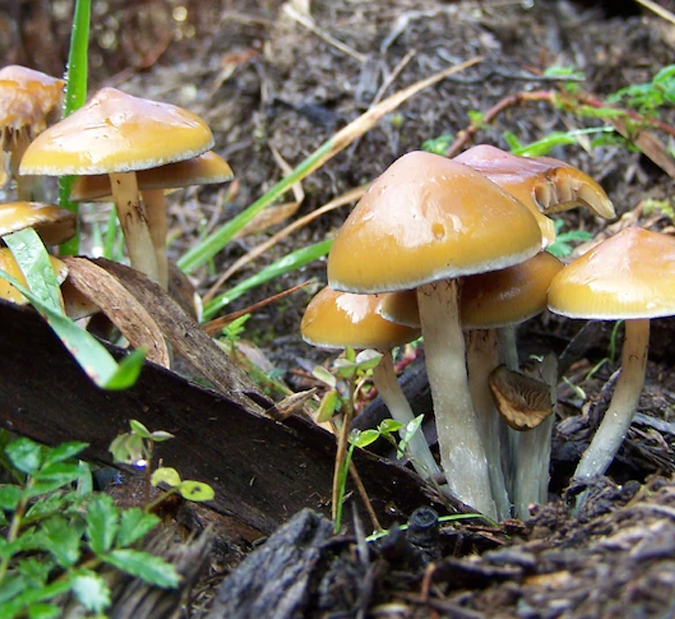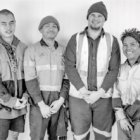A review by an independent expert panel has found MDMA and psilocybin or “magic mushrooms” may show promise for therapeutic use.
The review, which was commissioned by Australia’s Therapeutic Goods Administration (TGA) and released on Thursday, found the psychedelic drugs could potentially be used to treat treatment-resistant mental illnesses – but only if they were used in closely supervised clinical settings, with intensive professional support.
The TGA has been assessing whether to down-schedule MDMA and psilocybin from prohibited (schedule 9) to controlled (schedule 8) drugs.
That means, if the drugs were rescheduled, they could be used in clinical therapies to treat depression, post traumatic stress disorder (PTSD) and other complex mental illnesses.
One step closer
MDMA and other psychedelics have been considered dangerous ever since the “war on drugs” began but scientific research into their therapeutic uses is always evolving.

‘Psychedelic renaissance’ sees first legal collection of Australia’s medicinal magic mushrooms
Australia’s first legal collection of native “magic” mushrooms could provide medical options to treat severe depression, alcohol and drug addiction, post-traumatic stress disorder (PTSD), and the fear experienced at the end of terminally ill people’s lives.
While Thursday’s report brings Australia one step closer to seeing MDMA and psilocybin being used to treat mental illnesses, the TGA won’t make a final decision on the reclassification until December.
Director of psychedelic research at Edith Cowan University’s school of medical and health sciences, Dr Stephen Bright, thinks it’s only a matter of time before psychedelics are used in mental health therapies.
“There’s a lot of research into how psilocybin can be used in the treatment of treatment-resistant depression, for obsessive compulsive disorder, to help people come to terms with an end-stage illness, for substance use disorders.”
Doctor Bright believes MDMA will go mainstream first, despite it not being a “classic psychedelic”.
“MDMA is primarily being used to treat Post Traumatic Stress Disorder but there is also some interesting research looking at MDMA to treat anxiety among adults with autism,” he said.
“Earlier this year there was a phase three clinical trial published, and so we’re getting data that’s sort of beyond promising now.”
‘Fine line’ between self-medication and recreation
Like anything that’s ever been prohibited, where there’s a will, there’s a way.
“I think there’s a really fine line between what we call recreational use and medical use, because there’s certainly people using some of these psychedelic drugs in an underground therapeutic environment at the moment,” Dr Bright said.
“And the problem with that is they’re unregulated, we don’t have any quality control.”
While Dr Bright believes regulation would remove some of the dangers associated with drug use, he has strongly advised against self-medication.
“People that have a pre-existing mental health condition, adding the drug on top of that, without the proper psychotherapy is actually quite dangerous and could lead to their mental health condition becoming worse rather than better,” he said.
Despite the growing body of research, Dr Bright believes medical use is still a long way off.
“We need to upscale the research that we’re doing and offer ample opportunity for psychiatrists, psychologists, social workers, and counsellors to be trained up in therapy and deliver it.”
The pleasure and pain of psychedelics
Merlin Faber is a lot of things: a convicted drug offender, law student, and believer that “you have to try everything once.” He was also asleep the morning a parcel arrived that changed his life.
“I heard a knock on the door, went to sign for a package and went back to bed thinking it was motorcycle parts or something I’d ordered from overseas,” the 27-year-old said.

Merlin Faber wants MDMA and psilocybin decriminalised for therapeutic use.
Image:
Supplied
But it wasn’t motorcycle parts. It was half a kilogram of MDMA.
“About 10 to 15 minutes later, I heard about 20 car doors slamming outside my house, people at the front and back door, knocking on the windows and yelling my name.
“That’s when I realised that the Australian Federal Police had become involved.”
Merlin first tried psychedelics as a teenager with friends in Canada, and describes his own experiences as therapeutic.
“I found that people who had suffered traumas early on in their life became much more open.”
In 2017, he met a guy at university in Adelaide, who shared his interest in psychedelics.
“This person sort of knew the ways and means to procure drugs online. And so we began talking about our experiences, and it was something that I was told that I could get help with,” he said.
“I wasn’t involved really in the procurement.”
But a jury disagreed and found him guilty of importing a marketable quantity of a border-controlled drug.
Merlin was eventually sentenced to four years in prison, with a non-parole period of 16 months.
“Prison was definitely a significant impact… I would never recommend it to anybody,” he said.
‘It does make you feel hopeful’
For Merlin, the notion that MDMA and psilocybin could be decriminalised for medicinal use is music to his ears – but not for the reason you might expect.
“The use of psilocybin as a treatment for post-traumatic stress disorder, depression, and end of life therapy is really quite amazing,” he said.
“And so, seeing things in Australia change, like the decriminalisation of marijuana use in the ACT, it really does make you feel hopeful.”
Having recently been released on parole, Merlin is now studying law at the University of South Australia and hopes to use his experience to help others.
“It’s galvanised my resolve for advocating for a re-assessment of attitudes towards how we treat people, mostly in regard to drugs.”



